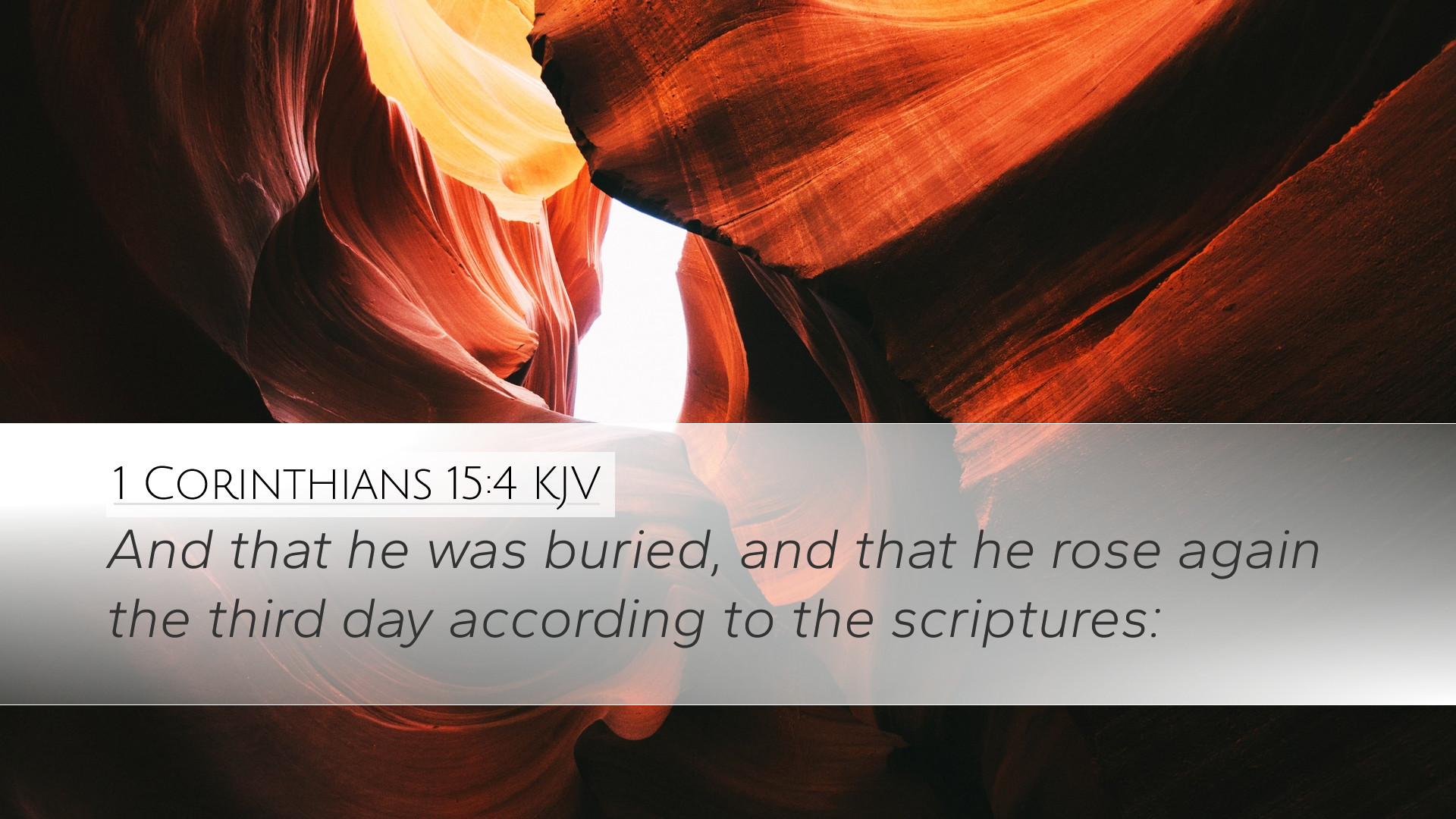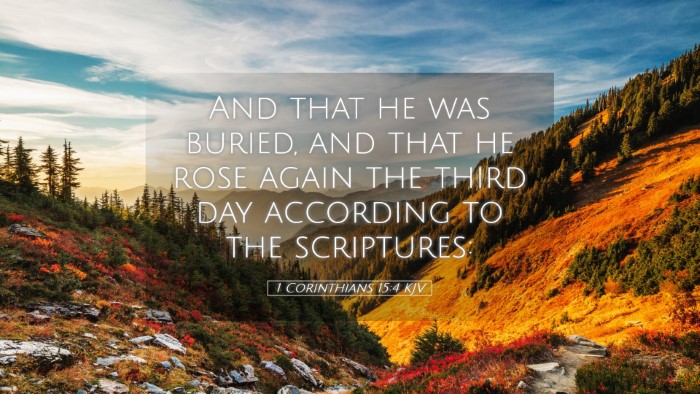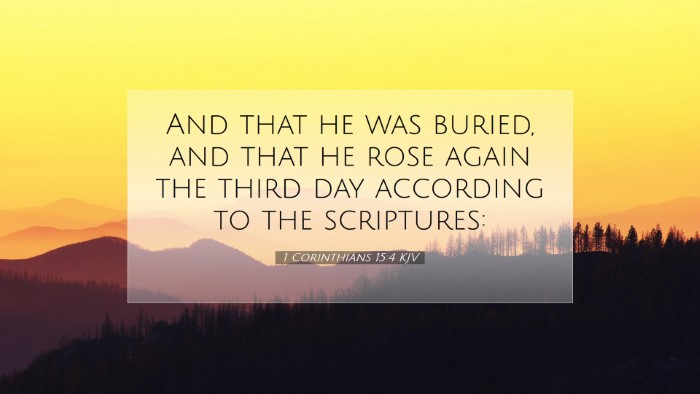Commentary on 1 Corinthians 15:4
Bible Verse: 1 Corinthians 15:4 - "And that he was buried, and that he rose again the third day according to the scriptures."
Introduction
This verse is a cornerstone of Christian doctrine, affirming both the death and resurrection of Jesus Christ. The Apostle Paul is emphasizing the importance of the resurrection in his letter to the Corinthians, and it serves as a vital element of the Gospel. Understanding this verse demands a look into the theological implications, biblical context, and the commentaries provided by luminaries such as Matthew Henry, Albert Barnes, and Adam Clarke.
The Resurrection: Central to the Gospel
Matthew Henry emphasizes that the resurrection is not merely a historical event but a divine confirmation of Jesus Christ’s identity as the Son of God. According to Henry, “the resurrection of Christ is the foundation of our faith.” In this sense, the apostolic tradition highlights the importance of this moment in the context of salvation history.
Albert Barnes elaborates on the phrase “rose again the third day.” He points out that it fulfills the prophetic scriptures, which are foundational to Christian belief. Barney states, “The fact of His resurrection is not only an event in history but a divine necessity for the redemption of mankind.” The mention of the third day also serves as an assurance that Jesus overcame death, fulfilling the prophecy and demonstrating power over the grave.
Adam Clarke notes the significance of burial before resurrection. He suggests that “it was necessary for Christ to be buried, both to fulfill the prophecy and to provide evidence of His bodily resurrection.” Clarke stresses that without acknowledging the burial, the resurrection loses its firmness as an established fact. This duality of death and resurrection presents the complete picture of Christ's work on earth.
The Significance of "According to the Scriptures"
This phrase not only indicates that the resurrection was foretold but also signifies God’s sovereignty over the unfolding of redemptive history. Matthew Henry relates this to the prophetic texts, stating that “both the death and resurrection of Christ were predetermined by God.”
Albert Barnes reinforces this by pointing to specific scriptures such as Psalm 16:10, which depicts God's Holy One not seeing decay, thus highlighting the prophetic nature and divine orchestration behind these events. For Barnes, the alignment with Scripture endorses the legitimacy of the resurrection, confirming that the events were part of God’s eternal plan.
Adam Clarke also notes that the fulfillment of these prophecies acts as a divine testimony of God's faithfulness. He emphasizes that this should inspire believers' trust in God's promises, as past fulfillments offer a precedent for future hope.
Theological Implications of the Resurrection
The resurrection is the foundation of Christian hope and assurance of eternal life. Matthew Henry articulates that it should shape the believer’s life and perspective. The reality of Christ’s victory over death provides assurance that believers too will be resurrected.
Albert Barnes connects the doctrine of resurrection with the theme of regeneration in a believer’s life. He notes, “Just as Christ was raised, so too are we raised to newness of life.” This linkage between Christ’s resurrection and the believer’s spiritual transformation emphasizes the power of God at work in the life of every Christian.
Adam Clarke further elucidates the impact of the resurrection on Christian life and conduct, proposing that “the power of the resurrection gives believers strength to overcome sin.” Clarke presents practical implications, suggesting that a true understanding of the resurrection drives the believer towards holiness and witness.
Conclusion
In summary, 1 Corinthians 15:4 encapsulates the essence of the Christian faith—Christ’s death, burial, and resurrection are vital components of the Gospel. The combined insights of Matthew Henry, Albert Barnes, and Adam Clarke elucidate the importance of this verse from various theological perspectives, reinforcing its significance for pastors, theologians, and believers alike. As believers reflect on the truths embedded in this scripture, they are reminded of the hope and assurance that comes from the resurrection, shaping their faith and guiding their lives.


